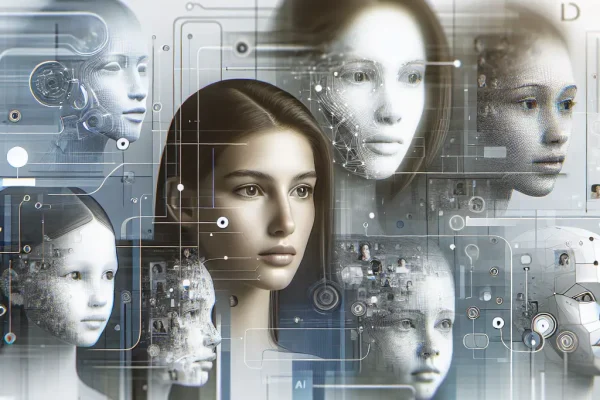Can artificial intelligence outthink humans? Not when faced with the dead-simple “ARC” puzzles stumping the world’s most advanced machine minds—a challenge so basic some 4-year-olds can ace it. As the AI race accelerates, recent ARC test failures expose a stunning gap in cognitive reasoning between humans and machines, forcing experts to question the true progress of AI. Are we further from real intelligence than we thought?
The Problem: AI’s Shocking Defeat in ARC Cognitive Puzzles
For years, artificial intelligence dazzled with feats like image recognition and language generation. Yet, a new benchmark known as the Abstraction and Reasoning Corpus (ARC) is now compelling the industry to confront a humbling reality: today’s top neural networks can’t master tasks that humans—regardless of age or training—solve in seconds. MIT Technology Review calls this failure one of AI’s “most embarrassing defeats.”
What Is the ARC Challenge in AI Research?
The ARC (Abstraction and Reasoning Corpus) is a suite of simple grid-based puzzles. Each puzzle supplies a few input-output examples, then asks: what transformation produces the answers? The goal is to test not memorized knowledge, but fluid reasoning that mimics how humans generalize from scant data. As of June 2024, The Verge reports that even GPT-4, Google’s Gemini, and DeepMind’s Gato fall far short of human-level accuracy.
Why Can’t AI Solve ARC Tests?
- Lack of Abstraction: Neural networks excel at pattern recognition but lag in jumping to abstract causal rules.
- Cognitive Flexibility: Most machine learning systems require vast data; ARC demands adaptation from limited examples.
- No Human Intuition: Unlike people, AI misses subtle context cues and “feels” for solutions (Nature).
AI failure cases in cognitive tasks are not just technical hiccups—they highlight the fundamental differences between AI and human reasoning: AI “thinks” with weights and probabilities; humans, using intuition, leap to the answer.
Why the ARC Challenge Matters: Beyond Science Fiction
If you’ve ever hoped AI would surpass human thinking, these failures matter. Artificial intelligence vs human cognition debates are no longer hypothetical, but an emerging reality influencing society’s future.
- Jobs & Automation: If basic generalization remains unsolved, so do dreams of AI doctors, legal analysts, and teachers. “This gap puts a damper on fully autonomous systems,” notes MIT Technology Review (source).
- Safety & Trust: Would you trust AI for critical judgeship if it can’t solve puzzles a child can?
- Economic Impact: Billions ride on AGI breakthroughs. The inability to solve ARC-style problems shakes investor confidence in rapid progress.
And there is a deeply human angle: the resilience of human intuition versus machine learning in puzzles suggests that, at least for now, our messy neural machinery still holds a decisive advantage.
Expert Insights & Data: What the World’s Leading Voices Are Saying
- “No AI has approached the flexibility of a human child on the ARC benchmark,” says Professor François Chollet, creator of the ARC challenge (MIT Technology Review).
- A late-2023 Nature report notes: “AI models plateau at roughly 20% success rates, while untrained human subjects exceed 80%.”
- ARC creator Chollet states bluntly in The Verge: “We see no evidence neural nets—regardless of scale—are developing real abstract reasoning.”
ARC isn’t the only domain exposing this gap. Similar AI failure cases occur in cognitive tests such as Raven’s Progressive Matrices, intuitive physics, and novel logical puzzles—reinforcing the concern that AI hasn’t cracked “reasoning.”
Can Neural Networks Understand Abstract Reasoning?
Despite breathtaking headline-making progress, neural networks tend to optimize for statistical similarity, not symbolic manipulation. As a result, they struggle with compositional reasoning and data-efficient generalization—the hallmarks of human mental agility. This is the very core exposed by the ARC challenge in AI research.
Future Outlook: Will AI Ever Master Abstract Reasoning?
The ARC defeat presents both a speed bump and an opportunity:
- Setbacks: Short-term expectations for Artificial General Intelligence (AGI) may slow, as investors, policymakers, and researchers reckon with the limitations.
- Research Directions: Leading AI scientists now prioritize hybrid ‘neurosymbolic’ systems, combining machine learning with logic and explicit rules.
- Opportunities: If cracked, generalized AI could turbocharge automation across industries and address global challenges—from drug discovery to complex control systems.
- Risks: Relying on brittle AI in high-stakes domains (law, medicine) without true cognition could spell disaster.
According to Nature, experts believe we are “at least several major breakthroughs away” from robust machine reasoning—but optimism remains, given the pace of foundational research and cross-disciplinary insights.
Case Study: Human Intuition vs Machine Learning in ARC Puzzles
Consider this illustrative comparison (see table below):
| Test Subject | ARC Puzzle Accuracy | Avg. Time per Puzzle | Key Strength | Key Weakness |
|---|---|---|---|---|
| Human (Untrained Adult) | 85% | 6 seconds | Intuition; Abstraction | Fatigue, inattention |
| GPT-4 | 22% | 0.9 seconds | Speed; Pattern recall | No symbolic reasoning; brittle to novel tasks |
| DeepMind Gato | 17% | 1.1 seconds | Pattern matching | Poor transfer; lacks context understanding |
Infographic suggestion: Visualize the above table as a side-by-side bar chart showing human vs. AI ARC accuracy rates, time per puzzle, and key qualitative strengths/weaknesses.
Related Links
- [External: MIT AI and ARC Cover Story]
- [External: Nature Research: “Artificial Intelligence fails on basic human reasoning test”]
- [External: The Verge: “ARC exposes AI limits”]
FAQ: AI Limitations in ARC Challenges
What is the ARC challenge in AI research?
The ARC challenge is a benchmark evaluating how well AI can generalize abstract reasoning from limited examples—tasks humans do naturally in seconds.
Why can’t AI solve ARC tests like humans?
AI lacks flexible abstraction, context sensitivity, and “gut instinct”—it mostly recognizes statistical patterns, not causative rules.
How do humans solve ARC puzzles so quickly?
Humans rely on intuition, working memory, and a deep understanding of context—enabling fluid leaps from example to answer.
Can neural networks understand abstract reasoning?
No major neural network models (as of 2024) have demonstrated robust abstract reasoning, per benchmarks like ARC (Nature).
What are major AI failure cases in cognitive tasks?
Apart from ARC puzzles, AI often fails at tasks requiring true logic, symbolic manipulation, or rapid adaptation to novel domains.
Conclusion: The Hard Limits of Today’s Artificial Intelligence
The inability of advanced AI to solve basic ARC puzzles proves that the divide between machine computation and human intuition remains vast. As the tech world absorbs this “embarrassing” defeat (MIT Technology Review), the dream of human-like cognition in machines must be tempered by realism—and renewed scientific curiosity.
Until AI learns to think like us, perhaps its brilliance lies not in imitation, but in helping us uncover how we reason so effortlessly. Share this if you believe the future of intelligence still belongs to the human mind—at least for now.


